River and ocean news, features and articles
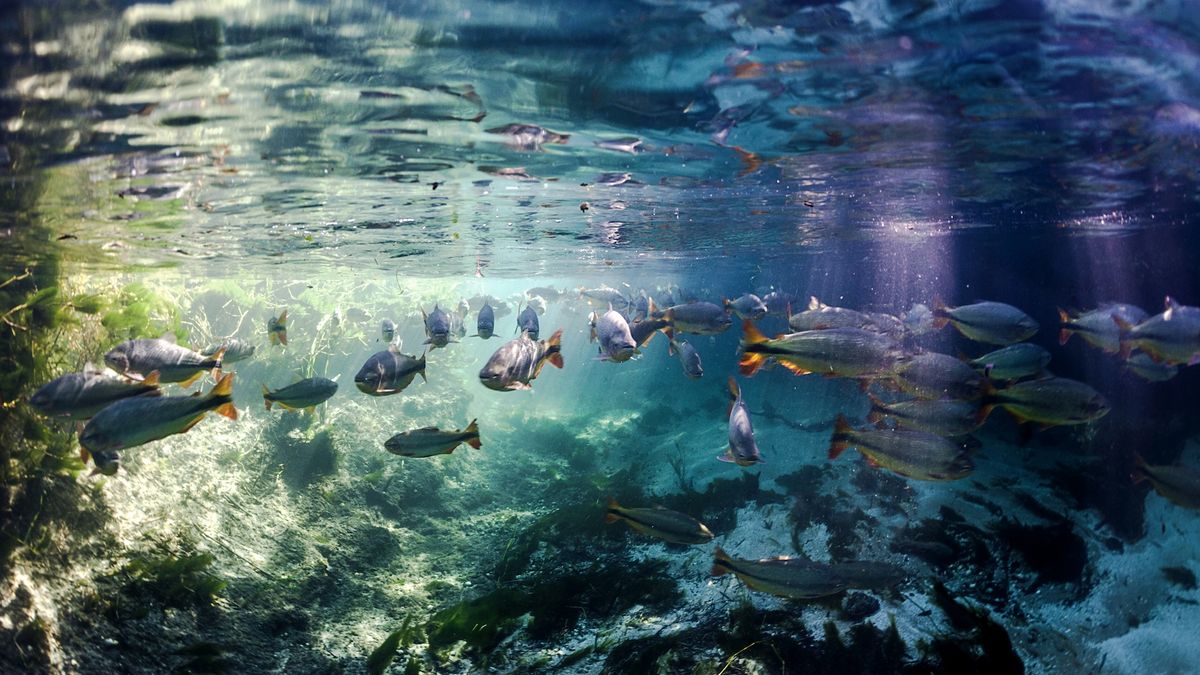
From the mightiest river to the deepest spots in Earth's oceans, our aquatic ecosystems hold many secrets waiting for us to dive in and discover. Live Science keeps you updated on the latest underwater research and delivers extraordinary facts and images from our planet's rivers and oceans, past and present. So if you want to discover the largest ocean that's ever existed on Earth, the mysterious "dark river" that may flow hundreds of miles beneath Greenland or breathtaking images from our oceans, Live Science's expert writers and editors are here for you with the latest news, features and articles about rivers and oceans.
Discover more about rivers and oceans
—The Congo River Basin: Home of the deepest river in the world
Latest about Rivers & Oceans
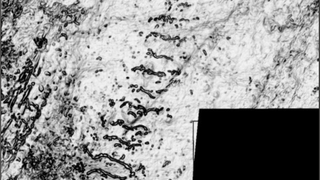
Giant ice age landforms discovered deep beneath North Sea revealed in amazing detail
By Sascha Pare published
New images from the North Sea show never-before-seen landforms that were carved by a single, colossal ice sheet 1 million years ago and subsequently buried beneath a thick layer of mud.
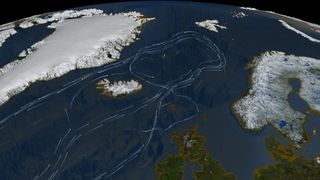
Denmark Strait cataract: The world's largest waterfall, hidden underwater and unlike any other on land
By Sascha Pare published
The Denmark Strait cataract is a sloping portion of the seafloor between Iceland and Greenland that funnels cold water from the Nordic Seas into the Irminger Sea, fueling Atlantic Ocean currents.
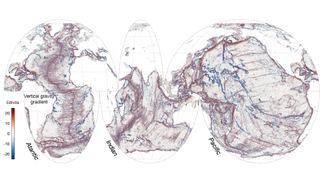
Satellites reveal stunningly detailed maps of Earth's seafloors
By Skyler Ware published
A newly-deployed satellite has created the most-detailed map yet of the ocean floor, finding hundreds of hills and underwater volcanoes that were previously missed.
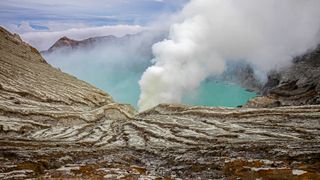
'A challenge and an opportunity for evolution': The extreme, hidden life thriving in Earth's most acidic and alkaline lakes
By David Strayer published
"The most acidic natural inland waters are the lakes that lie in the craters of volcanoes, like Kawah Ijen in Indonesia. These lakes are so rich in sulfuric acid that they may have a pH as low as 0.1. To put this in context, fresh battery acid has a pH of about 0.7. "
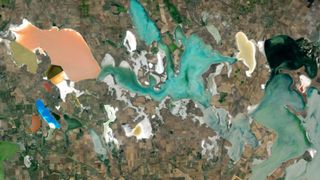
Crimea's 'putrid sea' creates beautiful rainbow of color but smells like rotten eggs
By Harry Baker published
Earth from space A 2014 satellite photo of the Sivash region shows off the kaleidoscopic colors of a series of shallow, hypersaline lagoons — each filled with a different kind of algae.
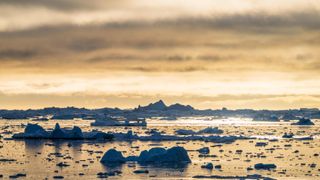
Key Atlantic current is weakening much faster than scientists had predicted
By Ben Turner published
A current key to stabilizing climates across the Atlantic and beyond could be one-third weaker by 2040, a new study has revealed.
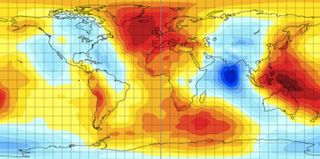
Indian Ocean gravity hole: The dent in Earth's gravitational field created by the death of an ancient ocean
By Sascha Pare published
The Indian Ocean "gravity hole" is a region where Earth's mass is reduced, leading to weak gravitational pull, lower-than-average sea levels and a puzzle scientists have only just begun to solve.

'A harbinger of what's to come:' NASA satellites show massive drop in global freshwater levels
By Ben Turner published
NASA satellites discovered that Earth's surface has lost enough water to empty Lake Erie two and a half times since 2015. And the problem could be here to stay.
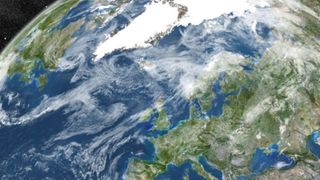
This spot will be key to the inevitable collapse of a key Atlantic current
By Sascha Pare published
New modeling research reveals that the Atlantic Meridional Overturning Circulation (AMOC) is particularly vulnerable to shifts in the Irminger Sea from increasing Arctic meltwater.
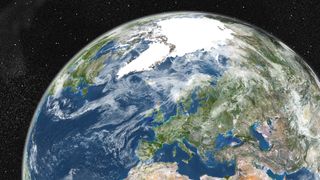
Earth is racing toward climate conditions that collapsed key Atlantic currents before the last ice age, study finds
By Sascha Pare published
Global warming during the Last Interglacial period caused so much Arctic ice to melt that Atlantic currents collapsed — and scientists say these are the conditions we could be heading toward.
Sign up for the Live Science daily newsletter now
Get the world’s most fascinating discoveries delivered straight to your inbox.
